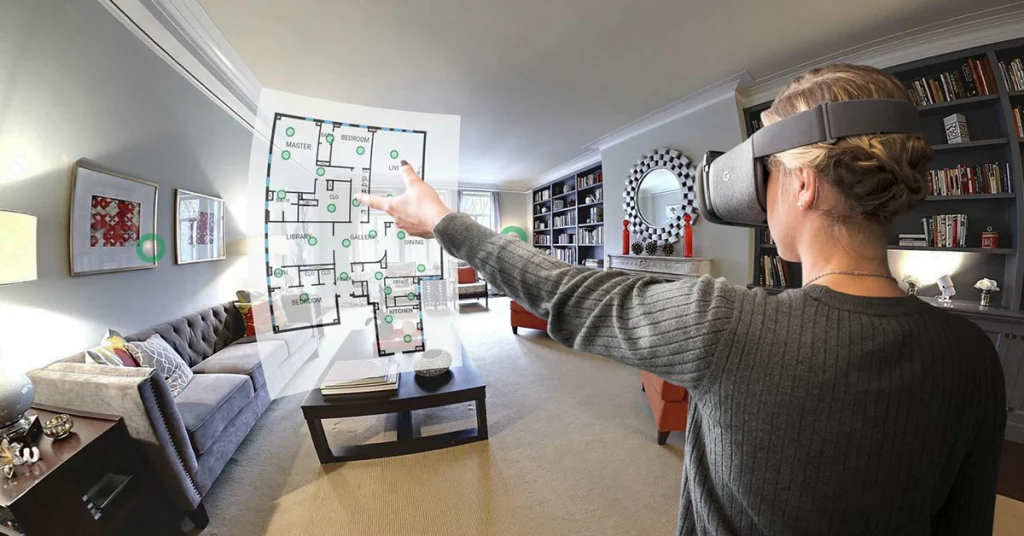Top 4 Real Estate Technologies
With the new wave of technological advancements that are sweeping across all industries and aspects of our lives, let’s take a closer look at what real estate agents can work with to benefit their businesses. The last couple of years didn’t only bring a once-in-a-lifetime pandemic, but also a multitude of real estate technologies that work to innovate the once linear market. Whether it’s fast-paced or easily accessible, real estate technologies are completely transforming an industry that used to require a lot of walking around, knocking on doors, and in-person meetings in the industry for those that grew up with one-click-away transactions. With how the world evolved, it’s time those innovations reveal the most profitable and accessible market on the planet.
Some of these tools came as a tidal wave, catching real estate agents off guard and overwhelmed by having to keep up with real estate tech trends. What’s important to note is that once these technologies are implemented, a real estate agent’s work will significantly simplify, become more efficient, and allow them to spend more time on what actually matters in the real estate industry: properties and clients. The following innovative real estate technologies are meant to support your business instead of shifting your focus away from your job. Below you’ll find the most vital real estate technologies that realtors should understand and apply in their business to get rid of grunt work and save time.
1. Predictive Analytics and Big Data

Source: unsplash.com
You probably came across this aspect of the online world on every site that uses cookies or other means to collect data from its users. It’s how your Netflix account knows what TV shows and movies to suggest for your enjoyment and how Facebook knows what adds to include for you on their platform. Due to our constant use of technology, massive amounts of data are collected and stored from each individual. While at first glance it might seem like a bunch of useless data, once combined and analyzed, patterns will emerge that can be useful.
Predictive analytics takes that data and makes it possible for individuals i.e. real estate agents at https://schafersreal
2. Chatbots and Artificial Intelligence

The advancements coming from artificial intelligence and its vast applicability will help you be two steps ahead of everyone else. If you have a website, make sure you include a chatbox with an artificial intelligence algorithm that can respond to the most common questions clients might ask. Gone are the days when you had to provide a response to each individual question posed by a client. Now, we have software that does that and its applicability is suitable even for voice recordings, so something like an artificial assistant.
Through virtual assistants, you will no longer have to be available for replies 24/7, providing your clients with a channel where they can get their questions answered in real-time. The applicability of artificial intelligence is not limited to chatbots. Different algorithms can be introduced in different applications making it possible to analyze vast amounts of information, create statistics and run your business more efficiently and effectively.
3. Augmented and Virtual Reality

Source: encora.com
The impact the COVID pandemic had on the real estate industry pushed forward technological advancements that made physical presence not mandatory. Nowadays, potential clients can view properties from the comfort of their house through the use of a simple tablet or phone. It’s no longer enough to get leads and respond to their inquiries fast. Nowadays, you also have to make sure that your clients have a high-quality experience from viewing your listings. Those that are tech-savvy may even go as far as providing virtual reality glasses. But that’s the baseline as this technology opens a lot of doors for customers.
Just imagine designing a home and having a walk through the property with your clients where, even if the construction is still in its early stages, your customers will be able to see the finished project and make changes through virtual reality that will, later on, be implemented into their dream home. This technology is especially attractive for properties that are still in development as designing a property on paper is one thing, but designing it in virtual reality as you walk through it. Choose the couch that fits best not by looking at it in the store or online, but by placing it in your living room in virtual reality. The possibilities really are endless and interior design will be taken to new heights with these innovative real estate technologies.
4. Blockchain and NFTs

Source: buyucoin.com
We won’t get into too many details seeing as these technologies are barely in their beginning stages of entering the real estate market. The reason for that is, simply, they are new. While not 2024 new, they are currently only used in speculation and the selling of digital music and art. Still, the future is young and there are already a few examples of properties being represented by NFTs that can be bought through cryptocurrency through blockchain technology that ensures security, transparency, and irrefutable ownership of assets. However, don’t expect to sell physical real estate properties as NFTs in 2024 but keep an eye out on this technology because if it’s implemented in real estate at large, there will be an astronomic shift across the market, and understanding it now will help cryptocurrency friendly realtors in the future.
Conclusion
It’s no wonder the real estate industry is changing with the new age of technology upon us. It would be shocking if it didn’t. Still, while these technologies are meant to improve the real estate market by making it more accessible and flexible, they are new technologies, and learning to use them might require a bit of know-how. The future will come with many other innovative technologies and we need to adapt to them as they come.
So whether you’ll focus on artificial intelligence, virtual reality, NFTs, or predictive data, they each bring their own benefits. Either way, your career as a real estate agent can only be improved if you embrace these trends. The future is now and it is ours to shape however we want.



















